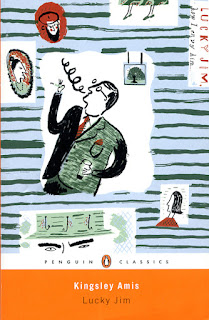 |
| Haeckel’s 1874 drawing of stages of development in the embryos of fish, salamander, turtle, chick, pig, calf, rabbit and human. |
Professor Clarke stood at the blackboard with assured elegance. It was not just the beauty of his layout and lettering, it was the poise of his whole demeanor. Arm outstretched, extending exactly the right proportions of wrist and cuff beyond suit sleeve, he grasped the chalk delicately between thumb and forefinger, and with an economy of effort, calmly progressed through his lecture. What a privilege to be in the presence of such a highly esteemed international reputation.
He was talking about pre-natal and neo-natal human development: physical and mental growth before and around birth. He concluded with a short quotation. None of us quite caught it. He said something like: “Antigen capital file genre.”
In those days students weren’t given all the slides and notes on the internet to learn and parrot back in examinations. We used to read around lectures. We went to the library and made notes from text books and academic journals. We even owned quite a lot of expensive text books ourselves. So before long I worked out that what he had actually said was: “Ontogeny recapitulates phylogeny.” Furthermore, I understood what it meant: a chunk of lecture succinctly summarised in three words.
The point is, as became clear when we later learned about how we acquire the power of speech and language, if we don’t understand something, if we cannot make sense of how the words fit together, we find it difficult to say. Think of the novelty song Mairzy dotes and dozy dotes and liddle lamzy divey.
Twenty years later the children were laughing.
“I bet you can’t say “Peter Piper picked a peck of pickled peppercorns,” said my wife, and recited the full verse, faultlessly. She followed it with “She sells sea shells …” as an encore.
“The British soldiers’ shoulders,” I added, not to be outdone. “The Leith police dismisseth us,” and then out of nowhere, “ontogeny recapitulates phylogeny.”
Within a few days my eight year old son had got it. “Ontogeny recapitulates phylogeny” he would tell anyone who would listen. At school, he was in Mr. Price’s class.
“Hello Mr. Price,” he said. “Ontogeny recapitulates phylogeny.”
“Aunty Jenny was late for what?” queried Mr. Price.
“It means when a baby grows in its mummy’s tummy, it starts off like a little tadpole, and then looks like a little frog, and then like a little bird, and then a little horse, and then a little monkey, and then a little baby.”
That guy recently passed all his law exams.
What a pity that Meckel and Serres’ theory of embryological parallelism, perfectly encapsulated in Ernst Haeckel’s catchy phrase, illustrated by his somewhat dishonest drawing and so urbanely recapitulated by Professor Clarke, has been discredited as biological mythology.
Haeckel's 1874 illustration of embryos is out of copyright.


